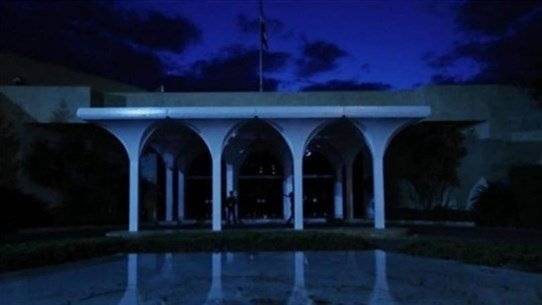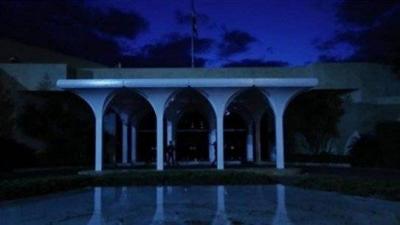If the country were in a normal situation, it would be certain that the countdown to the end of President Michel Aoun’s term has begun, especially since only a few days separate us from the thirty-first of August, the date that marks the beginning of the constitutional period for electing a new president, which extends until October 31, the date of his exit from Baabda Palace.
So far, there does not appear to be any urgency from Speaker of Parliament Nabih Berri to set a date for the first election session, as he has linked it for some time to the necessity of the Parliament passing reform laws. This implies that there is no consensus on a presidential candidate, and everyone is concerned about the two-thirds quorum required to open the session in the first round, leading up to the election of a president by a simple majority in the second round.
What is certain is that the presidential election session of 2022 will not be like its predecessors, as ensuring the quorum or boycotting the session is in the hands of several factions, from the large blocs to the independent and change-oriented deputies. Additionally, no faction, along with its allies, can single-handedly secure the full 65 votes needed.
However, the challenge of electing a president does not only stop at the session's quorum and the absence of an official candidate for the position. There are only qualifications set by those who consider themselves natural candidates, even those who are still reluctant to announce their candidacy. The more significant dilemma lies in President Michel Aoun's potential failure to vacate Baabda Palace after his term ends on October 31.
When asked whether President Aoun might follow in the footsteps of President Amin Gemayel, who formed a military government in the last minutes of his term on September 22, 1988, and transferred presidential powers amid the existence of a resigned government led by Prime Minister Selim Hoss, it is noted that this scenario is impossible constitutionally and personally. Aoun will not grant Army Commander General Joseph Aoun the opportunity to be the next president, which would signify the end of any ambitions for his son-in-law, MP Gibran Bassil.
However, in Lebanon, during these bleak days, anything is possible in politics. According to international law expert lawyer Antoine Safir, the constitutional void is closer than relying on such legal interpretations. He indicates via "Al-Markaziah" that "the issue of revoking the mandate is not stated in the Lebanese Constitution, and this might be one of its deficiencies. However, in today's reality, no authority can withdraw the mandate from the designated Prime Minister on two levels: firstly, he is the Prime Minister assigned to form it with the President, and secondly, as a representative of the Sunni Muslim community. Therefore, the issue cannot be raised from either angle."
Safir adds: "What was acceptable before the Taif Agreement, according to the provisions of the Constitution, is different from what it has become after the Taif. Before the Taif, a President could appoint any Sunni figure to form a government and end its powers, considering it as resigned, essentially dismissing it. Today, the matter is different, as according to the texts of the amended Constitution, the President cannot form a government without returning to compulsory parliamentary consultations, and the results of these consultations must be reported to the Speaker of Parliament, based on which he designates a Prime Minister to form the government with him."
Thus, the two political options currently lack a constitutional basis as the constitution is clear. But in constitutional interpretation, there is no choice but to form a new government by agreement between the President and the designated Prime Minister, or in the case of a presidential vacancy, the caretaker government assumes the powers of the presidency by proxy, even though it is resigned according to constitutional texts.
Some are counting on the anticipated developments in the region, and consequently, on border demarcation negotiations, the commencement of drilling, and the extraction of oil and gas to determine the metrics that will be adopted in the upcoming phase, which will, in turn, outline the roadmap for electing the President of the Republic. Beyond that, anything is possible except for Aoun remaining in Baabda Palace or revoking the mandate from the designated president, Najib Mikati. "We may enter a non-constitutional presidential void where the caretaker government assumes the powers of the presidency by proxy. Aside from that, nothing is feasible according to the Taif texts," Safir concludes.




